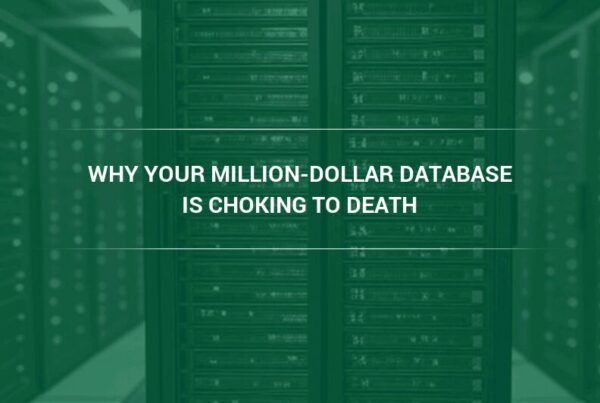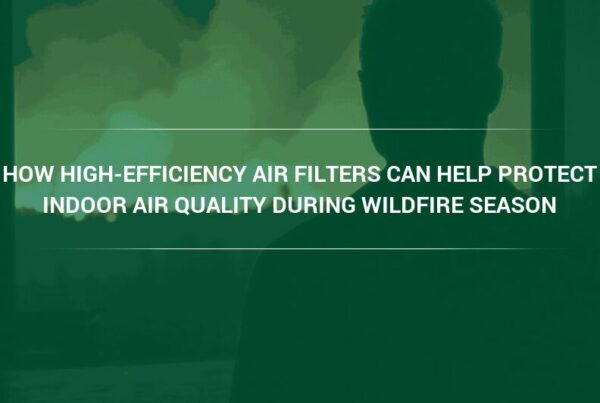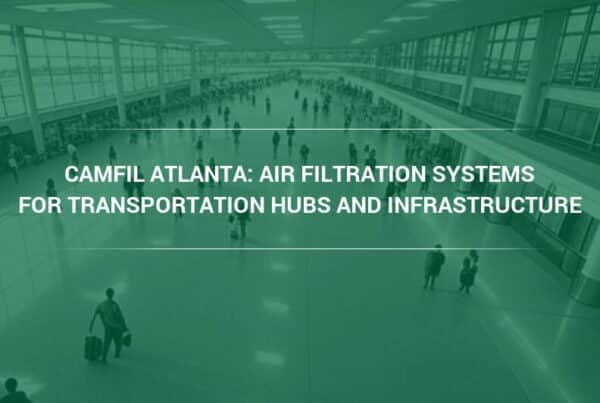The Scary Reasons Why China Is Using Canned Air Instead of Relying on Industrial Air Filters
Camfil Commercial Air Filter News – It’s well known that China suffers from severe levels of air pollution, largely as a consequence of its rapidly growing and industrializing economy. This toxic air pollution decreases visibility and makes it difficult to breathe. Cities that struggle with severe air pollution in China often need to rely on industrial air filters just so that residents can breathe without being exposed to massive amounts of air pollution.
Is the air pollution in China so bad that Chinese citizens are willing to purchase clean air?
One entrepreneur in Great Britain, Lew De Watts, has developed a company that sells jars or bottles of clean air to people around the world. One of the company’s biggest markets is China, and many glass jars full of clean British air have been dispatched to cities like Shanghai and Beijing.
Why would citizens in China purchase jars of clean air?
Aren’t commercial and industrial air filters and air purifiers wiser investments?
HVAC Air Filters in Commercial and Industrial Applications Are Important For Removing Particulate Matter And Ozone
The air in cities like Shanghai and Beijing is often packed full of dangerous air pollutants. These air pollutants include compounds like ground-level ozone and particulate matter. HVAC air filters are designed to remove these toxic air pollutants from the air so that people can breathe easier while indoors.
When ozone is in the upper atmosphere, it shields us from the sun’s harmful ultraviolet rays. Yet at ground level, ozone is a toxic air pollutant that contributes to smog and damages people’s lungs. This ground level ozone comes from the interaction of heat and sunlight with volatile organic compounds (VOCs), including things like formaldehyde, styrene, benzenes and gasoline fumes. Sunlight has energy, and this energy can easily transform these compounds into toxic ozone.
Particulate matter doesn’t refer to any one kind of air pollutant, but is instead a catch-all term for any small particles of air pollutants that pose a threat to human health. Particulate matter is usually divided into three different categories: PM1, PM2.5 and PM10. These particles are smaller than 1-micron in size, smaller than 2.5-microns in size, and smaller than 10-microns in size respectively. The smaller the particles are, the more dangerous they are to human health.
“Most particles are sub-micron, or smaller that 1-micron in size and at that size they can penetrate deep into the lungs and bloodstream, doing damage to the body,” warned Camfil’s Charlie Seyffer, Manager of Marketing & Technical Materials and 37-year ASHRAE member and active committee participant. “. Particulate matter can come from a number of different sources, like the combustion of fossil fuels, the burning of biofuels, construction and road traffic.”¹
The air that De Watts’ company sells to Chinese consumers is substantially cleaner than the air in China. It has far less particulate matter and ozone air pollution within it.
Commercial Air Filtration Systems Can Prevent Harmful Diseases from Developing
It’s important for those who live in polluted regions of the world like Shanghai or Beijing to have access to commercial air filtration systems. Commercial air filtration systems use industrial air filters to trap particles of pollution and then push the cleaned air through the building, preventing dangerous particles from being inhaled. This is important since breathing in particles of air pollutants like ozone and particulate matter can cause a number of different health problems.
“High concentrations of ozone can irritate the eyes, throat, and nose. It can cause, coughing, wheezing and general difficulty breathing deeply,” explains Seyffer. “Chronic exposure to even low levels of ozone can permanently impair lung function. Ozone exposure can also make the development of ailments like pneumonia and emphysema more likely, by degrading the protective lining of the lungs and making them more vulnerable to infection. Ozone exposure can also exacerbate previously existing respiratory conditions like asthma.”²
Particulate matter can damage the lungs causing issues like asthma. It can also affect the rest of the cardiovascular and respiratory system, causing ailments like chronic obstructive pulmonary disorder, heart attack, ischemic heart disease and increasing the risk of developing lung cancer. The particulate matter is even capable of riding the bloodstream up to the brain where it can penetrate the blood-brain barrier and cause brain damage.
While breathing clean air is important to one’s health, it isn’t the primary reason that people in China are buying jars of clean air from De Watts’ company. One of the primary reasons why people in China are purchasing jars of clean air from De Watts is to make a political and social statement on the severity of pollution and the necessity of both industrial air filtration units and air pollution reduction policies.
Canned Air Isn’t Intended as a Serious Replacement for High Efficiency Air Filtration Units
High efficiency air filtration units, combined with pollution control strategies, are the best ways to ensure people’s health in polluted regions such as Shanghai. The air jars being sold by De Watts’ company are typically being purchased as novelty gifts that will go unopened, rather than as any serious attempt to breathe in the clean air. The act of purchasing clean air is also a symbolic gesture, a political statement on the fact that air pollution is so severe in China but that air is so clean elsewhere.
“The company De Watts starts selling jars of clean air at around 115 dollars per jar. The jars contain about 580ml or 20 ounces of air, and since De Watts launched his startup last year, he has apparently sold hundreds of jars of clean air, harvested from the countryside around Great Britain,” described Seyffer. “The air is collected at around 5 AM in the morning when pollution levels are often lowest. Both ozone levels and particulate matter levels are low in the early morning hours.” (3)
De Watts lives in Hong Kong and often sells his clean air at local street markets. His jars draw a sharp contrast to the air quality in China, a country that just recently issued the first ever ‘red alert’ for air quality in Beijing. So while the jars sold by De Watts aren’t intended to be serious solutions to China’s air pollution problem, they do highlight the need for industrial air filtration and policies to reduce air pollution.
Portable Air Purifiers Can Be Used Alongside Commercial Air Filtration and Ventilation
High efficiency air filtration and ventilation are important tools that allow people in heavily polluted cities to protect their health. They can be used in either HVAC systems or in standalone portable air purifiers.
When choosing a filter for an HVAC system, be sure that the MERV level of the filter meets your needs. MERV is a system of ranking how efficient a filter is at absorbing pollutants, and the higher the MERV rating of a filter the more pollutants it can remove. If possible, HEPA filters should be considered. These high efficiency particulate air filters can remove particles down to 0.3-micron in size and they are typically used in hospital operating suites and high-level air quality manufacturing processes that use clean rooms.
Portable air purifiers are useful during times of intense air pollution when the regular filtration afforded by HVAC systems is insufficient. Portable air purifiers should be used in rooms where people spend most of their time, like bedrooms while asleep or living rooms while awake. Check to make sure the portable air purifier you purchase uses replaceable HEPA filters, as other forms of pollution neutralization are less efficient.
Commercial Air Filtration Devices Can’t Protect People’s Lungs by Themselves
Commercial air filtration devices are critical tools that can protect the public’s health, especially in cities like Shanghai that suffer from air pollution that regularly hits orange air quality alert levels. Unfortunately, however, these devices can’t protect people from air pollution when they venture outside. For those who live in China’s polluted cities, it is important that they take measures to protect themselves and to cut down on air pollution levels.
Those who must travel outside on days with poor air quality should utilize industrial grade filtration masks, as regular masks designed to prevent the transmission of microbes aren’t small enough to filter out particulate matter. Industrial face masks are designed to capture the particulate matter generated from activities like sanding and painting. For this reason, they can protect people’s health in the way other masks can’t.
People who must be outside for extended periods of time should also pay attention to air quality forecasts and venture outside when levels of air pollution are at their lowest. Air pollution is usually less severe in the early morning.
It’s also important for both citizens and regulatory bodies to work together to reduce air pollution. Government bodies can enforce limits on air pollution emissions and create the infrastructure to limit emissions, but individual citizens will have to make changes to their lifestyle by choosing to walk, using public transportation or biking to work instead of driving.
Camfil USA industrial air filters can advise you on how to best protect your health from air pollutants while traveling abroad in China or elsewhere. Contact us today to have all your questions answered by knowledgeable professionals and to purchase high-quality industrial air filters.
Lynne Laake
Camfil USA Air Filters
T: 888.599.6620
F: Friend Camfil USA on Facebook
Y: Watch Camfil Videos on YouTube
Sources:



